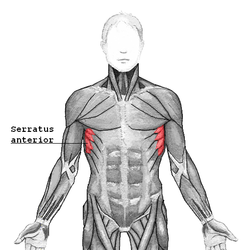For those of you who
have never played Loaded Questions, it is arguably one of the best board games. It never fails to be hilarious, entertaining, and surprising. For those of you who have never
played Loaded Questions with med students, beware. Five of us were playing,
four med students and one significant other (poor chap, he will eventually join
the med school clan, but for now, he's still sane).
Rules:
Question Asker picks a card and reads a question. Everyone else answers it.
Reader reads the answers and the Question Asker has to try to match the responses to each player.
However many matches the Asker gets correct is how many spaces the Asker gets to
move on the board.
I have played this game many times before, but never with other medical students. Just like the other times I've played, I thought this was just a normal, funny game. Until this happened:
Question: If someone were to stare up your
nostrils, what would they think?
Answers:
1. Cool! It's a deviated septum!
At this point, we all laughed and looked at each other, wondering which med student put that (I had my poker face on, because it was secretly my answer).
2. Dayquil... STAT.
Another legit answer. Again, we looked around and giggled, sizing each other up to see who presented with a cough, cold or flu-like symptoms.
3. Nasal septum... pink and moist.
First thought: Textbook description of a healthy septum. Great answer!
Second thought: Who ARE we!?! We are playing a game and these are the answers we generate? Med students. Smh.
4. Oh, what a glorious nostril this is that
I have happened upon.
We all gazed off with small smiles on our faces, envisioning a perfect, booger-free nasal cavity, pink and moist, with no septal perforations or deviations. And then we snapped back to reality and wished the non-med student good luck as he tried to match us with our answers.
This round piqued my interest and I started paying attention to our other answers. Use your imagination for the questions, but here are some of the responses recorded throughout the game:
Med Student 1: killed a patient, anatomy lab
cadaver after the dissection, killed a patient, Alzheimer's, dead conjoined
fetus stuck on head, highly neurotic
Med Student 2: not killing a patient, have a
baby, sleep too much, maxillary sinuses, congestive heart failure, missing
teeth, all the gunners having questions after lectures
Med Student 3: how to not kill a patient,
that weird kid in our class, Alzheimer's, 400 lbs of fat, I take nice notes
Med Student 4: kill a simulated patient,
locked-in syndrome*, pharmacy
Medical school changes people. I am certain that these would not have been answers that we would have written a year ago, prior to our M1 year. A year ago, we knew we were going to be doctors, we knew of some diseases, and we knew that medical school would be hard. But, if we were asked "What is the worst thing that could happen to you?" our answers would not have been "Alzheimer's" and "locked-in syndrome." If we were asked "What would you like to know more about?" we would not have responded with "how to not kill a patient." If we were asked "Who would you not want in your bed?" our answers certainly would not have included "anatomy lab cadaver after the dissection." Today, we think like doctors and that manifests itself in almost all that we do. It is quickly becoming second nature and we don't even notice it.
For example, I can't help that my first thought when I see the following picture, is "Wow! Serratus anterior!"
 | |||
| Thank you, Carly Rae Jepsen. http://data.whicdn.com/images/26359192/Holden-Nowell-18_large.jpg |
 |
| Compliments of good ole' Wikipedia. |
That's the glory of medical school. Med school consumes our time, so that eventually it consumes our minds. No matter what's going on, somewhere, deep down inside our brains' gyri, we are thinking about something that has to do with medicine and the human body. It might be annoying to play games with us, or maybe you'd find it entertaining. But, when it comes down to it, we are trained to always have our game faces on. I don't know about you, but I want my doctor to be the best in the game.
*Clinical Correlation: Locked-in syndrome is generally caused by damage to the ventral pons, which is a part of the brainstem. Patients with locked-in syndrome are fully conscious (awake, alert, aware), but completely paralyzed. Some patients retain the ability to move their eyes. Most patients can still feel pain and their cognitive function is still intact. Currently, there is not a cure for locked-in syndrome.
No comments:
Post a Comment